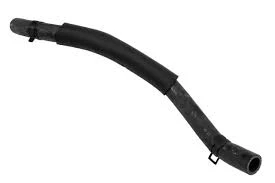Understanding Fuel Intake Hose Function and Maintenance for Optimal Performance
Nov . 27, 2024 02:06 Back to list
Understanding Fuel Intake Hose Function and Maintenance for Optimal Performance
Understanding Fuel Intake Hoses Importance and Maintenance
The fuel intake hose is an essential component in any internal combustion engine. This vital pipe or tubing plays a crucial role in delivering fuel from the fuel tank to the fuel injection system, ensuring that the engine receives the right amount of fuel necessary for optimal performance. Maintaining and understanding the importance of the fuel intake hose can significantly prolong the life of your vehicle's engine and optimize its performance.
What is a Fuel Intake Hose?
A fuel intake hose is typically a flexible tube made from materials resistant to gasoline and other petroleum-based products. It connects the fuel tank to the fuel pump and ultimately directs the fuel to the engine. These hoses are designed to withstand varying pressure levels while effectively maintaining the flow of fuel without leaks or hinderances. Depending on the vehicle make and model, fuel intake hoses can vary in diameter, length, and material composition.
Importance of Fuel Intake Hoses
Fuel intake hoses are designed for high durability, as they often encounter constant pressure and exposure to harsh chemicals. A properly functioning fuel intake hose is vital for several reasons
1. Fuel Delivery It ensures the uninterrupted delivery of fuel to the engine, which is crucial for efficient combustion and engine performance. 2. Engine Functionality A malfunctioning hose can lead to a drop in fuel pressure, causing the engine to stall or run erratically. This can compromise both performance and safety.
3. Fuel System Integrity The integrity of the entire fuel system depends on the hose's ability to prevent leaks. A damaged or worn hose can result in fuel leaks, leading to potential fire hazards and environmental concerns.
fuel intake hose

Maintenance Tips
Maintaining your fuel intake hose is relatively simple but requires vigilance. Here are some essential tips to ensure your fuel intake hose remains in good condition
1. Regular Inspections Periodically check the hose for signs of wear, such as cracks, bulges, or leaks. It is particularly crucial to inspect the hose during routine oil changes or when servicing other parts of the fuel system.
2. Replace as Needed If you notice any signs of deterioration, it’s crucial to replace the hose immediately. Ignoring small issues can lead to more significant problems that require extensive repairs.
3. Proper Installation If you’re replacing the fuel intake hose, ensure it’s installed correctly and securely. Follow manufacturer specifications for routing, fittings, and torque settings to avoid future issues.
4. Use Quality Parts Always use high-quality hoses that meet or exceed OEM specifications when replacing your fuel intake hose. It ensures durability and compatibility with your vehicle.
5. Professional Help If you’re unsure about the condition of your fuel intake hose or how to replace it, don’t hesitate to consult a professional mechanic. Their expertise can provide peace of mind and ensure that your vehicle remains in optimal condition.
Conclusion
In summary, the fuel intake hose is a critical element of your vehicle's fuel system, and understanding its function and maintenance is essential for any vehicle owner. Regular checks and timely replacements can prevent significant issues and ensure that your engine runs smoothly and efficiently. Remember, a well-maintained fuel intake hose contributes to your vehicle's overall performance and longevity.
